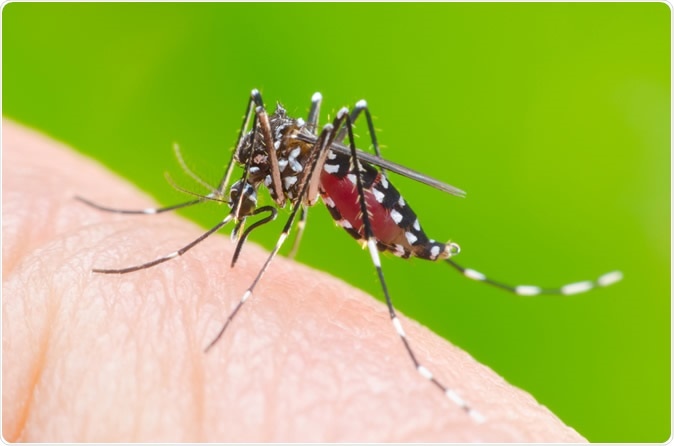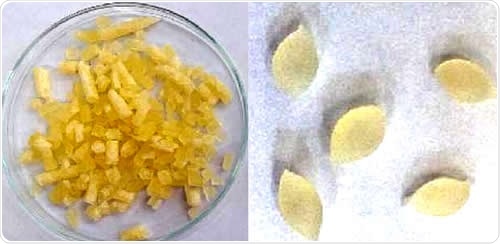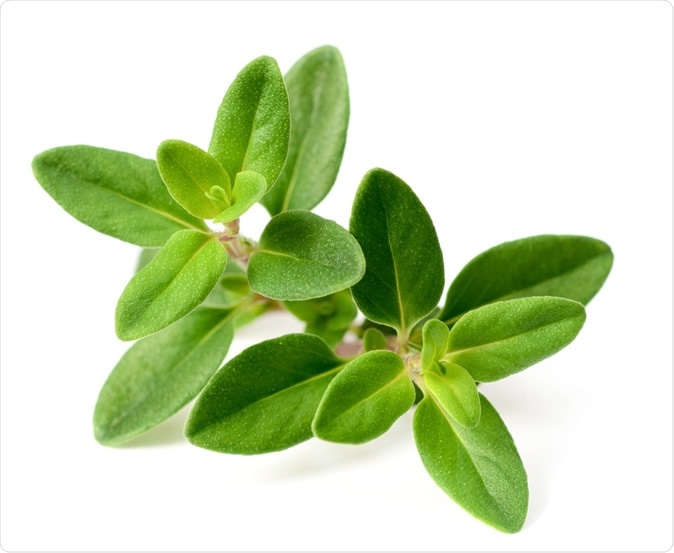Published in the journal Industrial Crops and Products, the study aims to create an affordable but potent way to kill mosquito larvae, preventing further outbreaks of many mosquito-borne diseases worldwide. Dengue fever, for instance, a viral illness caused by a virus carried by the Aedes aegypti mosquito is endemic in more than 128 countries, with as much as 3.9 billion people at risk.

Aedes aegypti mosquito on human skin. Image Credit: Khlungcenter / Shutterstock
Dengue cases on the rise
In fact, the Philippine Department of Health recently announced a national dengue epidemic with a staggering 146,062 dengue cases recorded from January to July 20, 2019, which is 98 percent higher than the same period last year. Of these cases, 622 patients have died.
Meanwhile, Latin America, including Brazil saw a high increase of dengue cases in the first half of the year. From January to July, the number of cases almost hit 1.2 million, a big increase of almost 600 percent from the 175,000 cases in the same period in 2018. The number of deaths related to dengue increased to 388 percent.

A system created in Brazil using cheap, biodegradable materials permits controlled release of larvicide and can be used in small amounts of water. Image Credit: Ana Silvia Prata / Shutterstock
Potent and effective larvicide
The new system, created by researchers in Brazil, contains affordable and biodegradable materials that permit controlled release of larvicide and can be utilized even in small amounts of water.
They used corn starch, an abundant raw material used in the capsule, and thymol, the microencapsulated larvicide and the active ingredient in thyme essential oil. Thymol is antimicrobial and can block the spread and proliferation of microorganisms in water containers.
"We succeeded in obtaining a particle that behaves exactly like eggs laid by A. aegypti," Ana Silvia Prata, a professor in the university's Food Engineering School (FEA-UNICAMP), said.
“While the environment is dry, it remains inert and keeps the active agent protected. As soon as it comes into contact with water, it begins to swell up and release the larvicide. After three days, when the eggs hatch and the larval stage begins, the particle starts to release lethal quantities of the active principle into the water,” she added.

Thyme herb. Image Credit: AmyLv / Shutterstock
The new noble tool can be used to treat small containers, in and out of households. The government has been focusing on treating large bodies of water, but research says that 50 percent of mosquito breeding grounds are found in small containers. The larvicide is best suited for these small containers, which are usually found in gardens, backyards, and other household objects that contain water. Also, potted plants, bottles, tires, and rubble, are all breeding grounds for disease-causing mosquitoes.
Larvicide efficacy
To determine the efficacy of their larvicide and the controlled release system, they conducted tests. They found that the particles remained efficient during about five rain cycles.
After the capsule’s initial contact with water, it released only 20 percent of the thymol. Also, in one test, the researchers tried to dry out the material and brought it back to the water, then, the particles still released the larvicide.
How was the larvicide produced?
The team-based their system on the life cycle of the A. aegypti, which has four stages namely egg, larva, pupa, and adult mosquito. The growth of the mosquito ranges from five to ten days. In hotter temperatures, the days become shorter.
The larval stage happens in water and it’s a strategic way to battle the proliferation of the mosquito. One of the researchers suggested using a method called extrusion, which is used in producing breakfast cereals. The process involves the heating of wet starch and forcing it through a tiny hole. The pressure and heat will make the material expand after going out of the hole.
"We adapted the process by using a lower temperature and slower screw speed to avoid expansion of the material. If it swelled, the particle would dissolve too quickly on contact with water, releasing the active principle all at once," Prata said.
The researchers also worked in the precise composition of their raw material, getting the exact structure and viscosity for it to remain intact when it meets water. Aside from that, they also tested both thyme essential oil and para cress (Acmella oleracea), which is also an effective larvicide.
But, thyme is more accessible and affordable than para cress, which costs 15 times more than thyme.
"Thyme essential oil is plentiful and commercially available. It corresponds to only 5% of the particle's composition. The rest is corn starch, which is very cheap. We, therefore, consider the technique to be easily scalable," Prata said.
The team suggested that the new system can help the government provide capsules to the public to be used at home and in their backyards. This way, they can prevent the proliferation of A. aegypti, and hence, prevent the diseases it causes.
Journal reference:
Juliana Dias Maia, Roseli La Corte, Julian Martinez, Johan Ubbink, Ana Silvia Prata, Improved activity of thyme essential oil (Thymus vulgaris) against Aedes aegypti larvae using a biodegradable controlled release system, Industrial Crops and Products, https://doi.org/10.1016/j.indcrop.2019.03.040., https://www.sciencedirect.com/science/article/pii/S0926669019301967